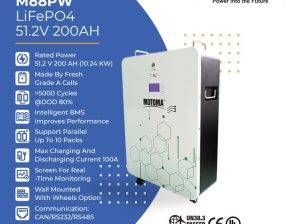Exploring Renewable Energy Resources for Home Energy Management Systems
The need for sustainable and efficient energy management systems for homes has grown significantly in recent years. Home Energy Management Systems (HEMS) allow homeowners to monitor and optimize their energy consumption, resulting in reduced utility bills and a smaller carbon footprint. One crucial aspect of HEMS is the energy source, and renewable energy resources have emerged as the most effective and environmentally friendly options. This blog post will explore various renewable energy resources and their suitability for Home Energy Management Systems, providing detailed explanations to help homeowners make informed decisions.
Solar Energy
Solar energy is the most widely used renewable energy resource for residential applications. It harnesses sunlight to generate electricity using photovoltaic (PV) panels or solar thermal systems. Solar PV systems convert sunlight directly into electricity, powering various appliances and charging energy storage systems. On the other hand, solar thermal systems use sunlight to heat water or air for domestic use. Solar energy is highly suitable for HEMS due to its scalability, low maintenance requirements, and availability in most regions. It allows homeowners to generate electricity and potentially sell excess energy back to the grid, maximizing cost savings.
Wind Energy
Wind energy involves converting wind power into electricity using wind turbines. Although commonly associated with large-scale wind farms, small-scale wind turbines are also available for residential applications. Wind energy can complement solar energy in HEMS by providing electricity during periods of low sunlight or at night. However, the effectiveness of wind energy in a residential setting depends on factors such as wind availability, local regulations, and space constraints. Homeowners considering wind energy should thoroughly assess their location’s wind resources before installation.
Geothermal Energy
Geothermal energy utilizes the constant temperature below the Earth’s surface to heat or cool homes. Geothermal heat pumps extract heat from the ground during winter and transfer it inside, while in summer, they extract heat from the home and release it into the ground. Geothermal energy is highly efficient and reliable, providing consistent heating and cooling throughout the year. Depending on the available space, it requires a ground loop system for heat exchange, which can be installed horizontally or vertically. While geothermal systems have higher upfront costs, they offer significant long-term energy savings and environmental benefits.
Biomass Energy
Biomass energy uses organic materials such as wood pellets, agricultural residues, or dedicated energy crops to generate heat or electricity. Biomass can be used in HEMS through pellet stoves or boilers, which burn biomass to produce heat for space heating or hot water. Biomass energy is considered carbon-neutral since the carbon dioxide released during combustion is offset by plants’ absorption of carbon dioxide during their growth. However, biomass availability and sustainability should be carefully considered, ensuring that it is sourced responsibly and does not compete with food production or contribute to deforestation.
Conclusion
Regarding Home Energy Management Systems, selecting the most effective renewable energy resource is essential for maximizing energy efficiency and reducing environmental impact. Solar energy is a versatile and widely available option, allowing homeowners to generate their electricity and potentially achieve energy independence. Wind energy can complement solar power in regions with favorable wind resources, providing continuous electricity generation. Despite requiring higher upfront costs, geothermal energy offers reliable heating and cooling throughout the year. Biomass energy provides a renewable heat source, but responsible sourcing and sustainability considerations are vital.
Ultimately, the choice of renewable energy resource for a Home Energy Management System depends on various factors, including location, available space, budget, and energy requirements. Consulting with renewable energy professionals and conducting a thorough assessment of these factors will help homeowners make an informed decision that aligns with their energy goals and contributes to a greener future.
You must be logged in to post a comment.


